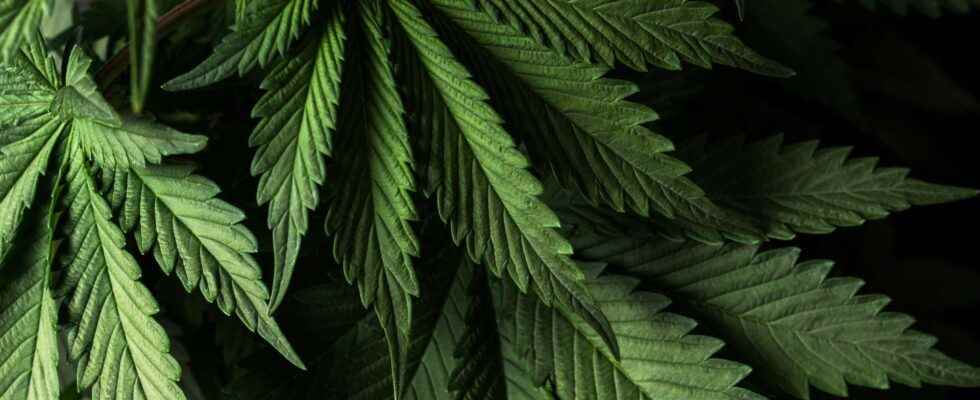Cannabis produces secondary metabolites that are of great interest to scientists. Among the best known is CBD. At the University of Oregon, a team tested the antiviral properties of two cannabinoids, CBDA and CBGA, in experiments in vitro.
You will also be interested
[EN VIDÉO] Cannabis: a painkiller for patients with sickle cell disease? A new study suggests that cannabis may help patients with sickle cell disease deal with their chronic pain. A first step that will have to be confirmed in the future.
Plants are full of molecules to therapeutic potential. L’species which is of great interest to scientists lately, is cannabis (Cannabis-sativa) and its non-psychotropic version, hemp. Among the 170 secondary metabolites secreted by the cannabis, there is one family, in particular, which is the subject of most scientific research, the cannabinoids. They attach to receptors of the same name throughout the body and have pharmacological properties interesting for the treatment of certain diseases. The most studied are THC and CBD.
In a recent study published in Journal of Nature Products, a team from the Linus-Pauling Institute, located in Oregon, and the University of Science and Medicine in the same state, showed the ability of several cannabinoids to block the entry of SARS-CoV-2 in cells grown in the laboratory. Preliminary results which do not, however, indicate that cannabinoids are effective treatments against SARS-CoV-2.
Two Cannabis Compounds That Reduce Coronavirus Infection of Cells
Two cannabinoids that bind to the coronavirus have been identified among the dozen tested: CBGA and CBDA. These two molecules are able to bind to the protein S of the coronavirus and its variants, at the level of its subunit S1 precisely. This is the first step. After that, the scientists tested the neutralizing action of these two compounds on SARS-CoV-2. The virions were incubated in the presence of CBGA or CBDA before being mixed with Vero6 cells in culture; 24 hours later, scientists looked to see if there was any coronavirus RNA in the cells. For both compounds, the genetic material of SARS-CoV-2 is completely absent from cells.
It takes 24 and 37 µg/mL of CBDA and CBGA respectively to halve infections in vitro. These values vary according to the variants considered, here Alpha and Beta, but according to the authors of the publication they “ are high but could be clinically feasible “. CBDA and CBGA could be more effective mixed in a cocktail than alone since their modes of action are compatible.
To ensure the real benefits of these molecules against the coronavirus, further research is essential. In the complex environment that is the human body, CBDA and CBGA might behave differently and not provide any of the benefits seen here, in a simple grow box.
Interested in what you just read?
.
fs6
